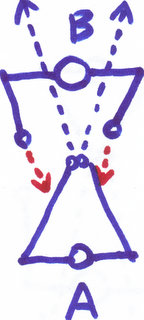Re: Anti-striking
oragami_itto wrote:The only part of the rhino guard I really disagree with is the hand clasping, it seems like that would slow down the transition from guard to grappling or clinch or whatever. I don't think that it adds enough to be worth it
I have tried different methods.
1. fingers locked.
2. tiger mouth hold thumb.
3. fist touch fist.
4. wrist touching.
5. ...
1 is still the strongest. The main purpose of 1 is to give beginners confidence. When they feel that their double arms is stronger than their opponent's single arm, they can be more relax and that will make the outcome to be in their favor.



